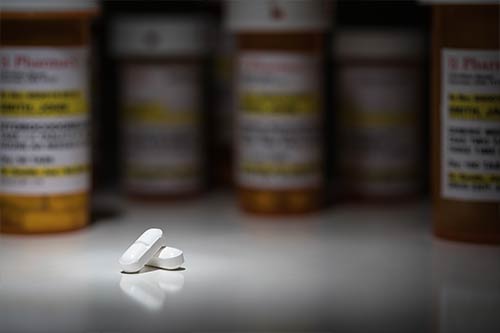It’s difficult to conceive of any industry as far-reaching, with products so much in demand, as the worldwide trade in pharmaceutical drugs. Global spending on pharma reached $1.25 trillion in 2019, with American consumers accounting for 40 percent of that total. The global market is expected to continue to expand and top $1.59 trillion by 2024.
Yet with literally billions of retail prescriptions being filled every year, it’s astonishing how few of us bother to ask questions about the risks and benefits of the wonder drugs we’re taking. We rely on our doctors to keep us informed, but studies suggest that physicians aren’t always vigilant about alerting patients to side effects and possible adverse drug interactions, despite the fact that the number of Americans taking five or more drugs simultaneously has nearly doubled in the past decade.
To avoid health problems, it’s important to be fully informed about what to expect when taking a new prescription. Here are some questions you should ask your doctor and/or your pharmacist before embarking on any new medication regimen.
What is this drug for and how does it work?
Knowing what malady a drug is supposed to treat may not be enough; it helps to have at least a basic understanding of how it goes about accomplishing its mission. For example, there are several different approaches to treating high blood pressure with medication, including diuretics (which helps increase the body’s release of urine and sodium) and ACE inhibitors (which widen blood vessels); the particular therapy selected may depend on other conditions affecting the patient’s health, such as diabetes. Having a frank, nuts-and-bolts conversation with your doctor about why you’re being prescribed this particular drug will help you manage your expectations and be alert to any problems.
What are the possible side effects and how common are they?
We’ve all heard the long list of side effects rapidly recited in some ads promoting new drugs, ranging from the mild (upset stomach) to the truly alarming (chance of stroke or tumors). Before starting on a new regimen, it’s a good idea to understand the likelihood of experiencing specific adverse effects and the tradeoffs involved. Pointed questions about how rare certain side effects are and the warning signs to look for can make you better informed and in a better position to decide if this drug is right for you.
What impact, if any, will this drug have on my current activities and treatments?
You should make sure that your doctor knows about any other prescription or “natural” remedies you may be taking, so that the possibility of adverse drug interactions can be thoroughly reviewed. But there also may be certain foods you should avoid or other necessary adjustments in your lifestyle. For example, you’d be astonished at the range of medications, from certain cancer drugs to cholesterol-lowering statins to immunosuppressants, that can be affected by drinking grapefruit juice.
Is this an “approved” use of the drug?
Physicians sometimes prescribe certain drugs for uses not approved by the Food and Drug Administration. Repurposing a drug for “off-label” use may be a good idea, if there’s been some reported success in using the drug to treat serious or even terminal conditions. But off-label prescribing is becoming more common and more controversial; examples include using a drug designed to ease the effects of chemotherapy to treat morning sickness, and prescribing an epilepsy drug to treat obesity and psychiatric conditions. Many of these uses lack solid scientific proof of efficacy and could be dangerous; if the drug you’re being prescribed was originally developed for a different purpose than what it’s being used for in your case, you should fully understand your doctor’s rationale for prescribing it.
Is a generic version available?
Depending on the situation, your doctor may write a prescription for the least costly version of the drug — or have good medical reasons for insisting on a particular name-brand formulation. You should make sure you understand what difference, if any, there is between the two and which one you should take.
What time frame am I looking at?
Are you expected to keep taking the drug for a week, a month, the rest of your life? When and how often should you review its use with your doctor, and how will you determine if it’s working? Questions such as these should be raised at the outset to avoid confusion down the line.
THE PRODUCT LIABILITY LAWYERS AT FDAZAR
If you or a loved one has suffered injuries as the result of a defective medical device or dangerous prescription drug, the product liability lawyers at Franklin D. Azar & Associates may be able to help. We have been helping injured people receive the compensation they deserve for more than thirty years. We are currently investigating reports of serious side effects involving the diabetes drug Actos, the chemotherapy drug Tasigna, Zantac and other heartburn drugs, the gout drug Uloric, and several other medications. Call us today or contact us here for a free consultation.



